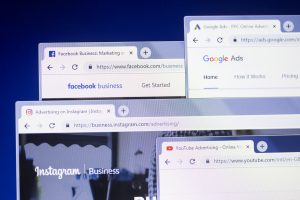They are 54 million strong, ranging in age from 18–34 in 2015, and account for one-third of today’s workforce according to Fortune, the largest generation at work. They are collectively, the Millennials, and have been talked about since their “Baby on Board” signs began appearing in the back windows of their parents’ cars. Today the buzz is less about their helicopter parents and more about how they are changing the workplace.
For years we have read about, heard about and witnessed this generation. We have tried to understand Millennials – this generation feeling special, entitled, needing instant gratification, disrespecting authority and focusing only on themselves. The truth isn’t quite so extreme, but they do see the world differently than Boomers and Xers. The way we all approach work is changing and will continue to change.
As Millennials began to come of age, several key events shaped their universe:
- The Columbine shooting: Now (sadly) commonplace, the Columbine school shooting was the first of-its-kind real-life horror story.
- The 9/11 attacks: Our nation was shaken to the core, and nearly 15 years later we are still fighting.
- The War on Terrorism: A global issue resulting in the injury or death of thousands of Americans.
- The dot-com boom and bust: Casual workplaces where advancements were swift, or the next best opportunity was down the street. This era impacted attitudes about workplace benefits and loyalty.
- China and India: Having the largest populations on the planet, their influence and reach in our global society is increasing.
- Hurricane Katrina: The whole world watched as the government (local, state and national) couldn’t get out of its own way, and the people of New Orleans and the Gulf Coast struggled to survive in its wake, let alone recover.
- Technology: They have never known a world without it. There have always been televisions, computers, cell phones and the Internet. They are savvy, proficient and early adopters of the next great technological advance.
Understanding that this is the world they grew up in, helps us to better understand the Millennial point of view, expectations and goals. A presentation by UrbanBound grouped these into five key areas.
Here’s what you need to know:
1. Atta Girls Necessary
Millennials want to know they are doing a good job and/or feedback on how to do it better. On the flip side, they don’t tend to handle criticism well, and any sort of raised voice is viewed as yelling or shouting. Think of it as coaching. You have a game plan, everyone knows their role and is prepared to give their best. It’s not just about saying, “You can do it Jane, I know you can.” It is about mentoring and dropping “breadcrumbs” along the way affirming that she is on, or leading her to, the right path. And let’s be honest, we all want to know we are on the right track, to receive praise and be appreciated for our contributions. Millennials who “aren’t feeling it” will leave to find it elsewhere.
2. Money Doesn’t Talk
Well, not completely anyway. Millennials want jobs where their strength and creativity can have impact. Work for the sake of work isn’t going to cut it, and according to Urban Bound, 92% of them believe success should be measured by more than just profits. Millennials care about causes, they are quick to give of their time and talent and want to work for a company engaged in the community—local or global. Listen to what’s important to them, and see if there are ways to merge it with your organizational culture so both he/she and your company can have impact and growth. Growth is critical, and promotions are expected as they demonstrate forward movement. The question you have to ask yourself is, “Job performance consistent with a company promotion, or is their next best opportunity someplace else?” And that’s okay with Millennials. They would much prefer to take their talent elsewhere than be stagnant.
3. Balance is Key
Millennials value time with friends, family and pursuit of their own interests. Having flexibility in the work place will win her over pay any day. In fact, 69% of Millennials think being in the office from 8 a.m. – 5 p.m. every day is unnecessary. They are highly productive and will give it their all, but they prefer to adjust schedules to when they feel most engaged. Fortune compared benefits offered by the percent of companies on Millennials’ Great Places to Work to those offered by other companies:
| Benefit Offered | Great Places to Work | Other Companies |
| Flexible Scheduling | 76% | 63% |
| Telecommuting | 82% | 74% |
| Paid Sabbaticals | 15% | 11% |
| Paid Volunteer Days | 46% | 39% |
Their attitude toward where work fits in their overall life is a 180 degrees from the traditional Boomer view and has already reshaped the Xers thoughts about work and life balance. It is finding a way for personal and professional to work together, as we are connected 24/7. The rest of life doesn’t wait until after 5 p.m. to happen anymore than work occurs strictly between the hours of 8 a.m. – 5 p.m.
4. Go Team!
Millennials want to work collaboratively, and as mentioned earlier, creatively. They want a work environment that facilitates that. Think of the things you’ve heard about Google headquarters: play area, nap pods, pets at work, cafes, etc. Millennials want to be social and comfortable and have access to the necessary fuel—from onsite cafeterias on one extreme to healthy vending snack options at the other— to fire up their creativity. Working with their friends in a creatively supportive environment leads to productivity (company benefit) and meaningful work (Millennial satisfaction).
5. Technology Driven
They have grown up with technology being central to their everyday lives, and they expect the best at work. In fact, 59% of Millennials say state-of-the-art technology is key to job selection according to UrbanBound. As early adopters of new technologies, they won’t hesitate to use if they believe it will increase efficiency. And remember they like to be social, so don’t even think about blocking or discouraging social networking while at work. That will send a strong, negative message aimed at the heart of who they are and what they value.
As your organization continues to balance and integrate the work styles of up to five different generations, Millennials account for the largest percentage of those workers and their attitudes toward work are creating seismic shifts in corporate cultures. At the end of the day, we all want dedicated and productive employees who embrace and forward our company’s mission. Millennials are the most technology savvy and among the most productive, provided they feel valued, mentored, have flexibility and opportunity to thrive in a creative environment.






